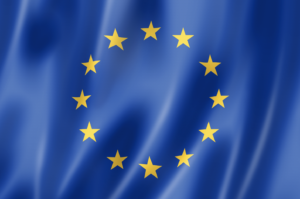BIS Innovation Hub Unveils New Work
Posted by Colin Lambert. Last updated: June 20, 2022
The BIS Innovation Hub, which operates as part of the Bank for International Settlements, has updated its 2022 work programme by adding new workstreams, specifically for the impending new Eurosystem Hub, due to open later this year. The streams will explore cryptocurrency markets, the implications of post-quantum cryptography for payment systems and climate-related disclosures.
The Eurosystem Hub will have centres in Frankfurt and Paris and its first projects is to build a crypt market intelligence platform. The BIS says the collapse of many stablecoins and decentralised finance (DeFi) lending platforms has highlighted the difficulty in assessing their risks and economic potential. “One reason is that most data on asset backing, trading volumes and market capitalisation is self-reported by unregulated firms,” it says. “Individual datasets and commercially available solutions do not provide comprehensive insights and lack transparency. The project’s goal is to create an open-source market intelligence platform to shed light on market capitalisations, economic activity, and risks to financial stability.”
The second Eurosystem workstream looks at the security of payments systems. Observing that Quantum computers may be capable of breaking the cryptography used by central banks and the private financial sector to secure payment and settlement systems, the BIS says this threatens the confidentiality and could undermine the integrity of payments systems. “Given the long-term sensitivity of financial data, this vulnerability must be addressed well in advance of the advent of quantum computing,” it states. “This project will investigate and test potential cryptographic solutions that can withstand the vastly improved processing power of quantum computers. The goal is to test use cases in various payment systems and examine how the introduction of quantum-resistant cryptography will affect their performance.”
The third stream relates to transparency around climate-related disclosures. “Central banks are increasingly looking into how climate change may affect financial stability, inflation, and other issues within their mandate,” the BIS says. “However, important data gaps and inconsistencies in data collection make their task more difficult. This project aims to build an open-source database of corporate reports coupled with a full-text search engine to identify sustainability-related disclosures. Machine learning and natural language processing tools will then be used to organise and structure this data.”
In addition to the Eurosystem initiatives, the Innovation Hub’s Hong Kong Centre will partner with the Bank of Israel and the Hong Kong Monetary Authority (HKMA) on a new study on central bank digital currency and cybersecurity. It is also starting a new phase of its green finance Genesis project.




